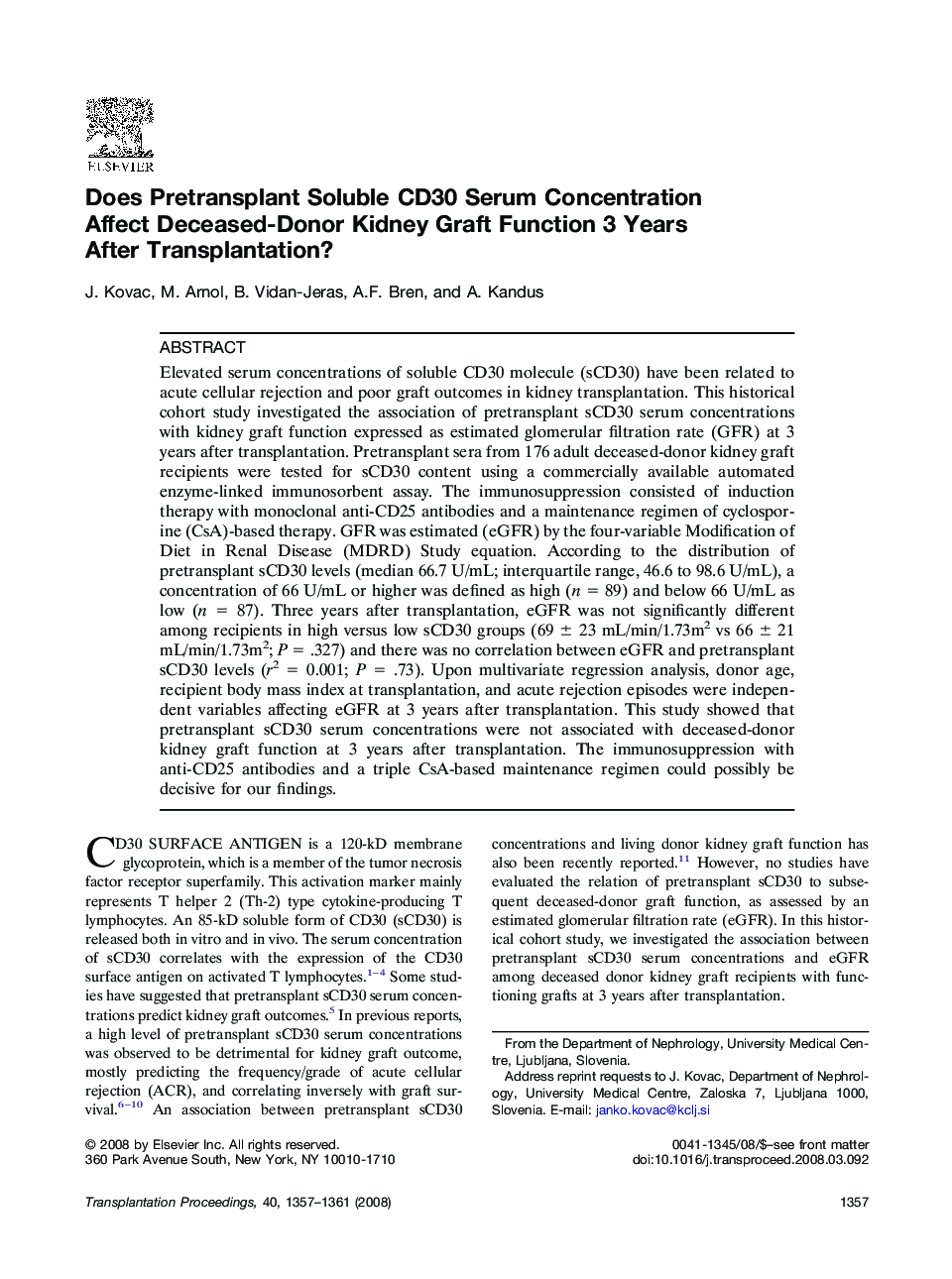| Article ID | Journal | Published Year | Pages | File Type |
|---|---|---|---|---|
| 4258216 | Transplantation Proceedings | 2008 | 5 Pages |
Abstract
Elevated serum concentrations of soluble CD30 molecule (sCD30) have been related to acute cellular rejection and poor graft outcomes in kidney transplantation. This historical cohort study investigated the association of pretransplant sCD30 serum concentrations with kidney graft function expressed as estimated glomerular filtration rate (GFR) at 3 years after transplantation. Pretransplant sera from 176 adult deceased-donor kidney graft recipients were tested for sCD30 content using a commercially available automated enzyme-linked immunosorbent assay. The immunosuppression consisted of induction therapy with monoclonal anti-CD25 antibodies and a maintenance regimen of cyclosporine (CsA)-based therapy. GFR was estimated (eGFR) by the four-variable Modification of Diet in Renal Disease (MDRD) Study equation. According to the distribution of pretransplant sCD30 levels (median 66.7 U/mL; interquartile range, 46.6 to 98.6 U/mL), a concentration of 66 U/mL or higher was defined as high (n = 89) and below 66 U/mL as low (n = 87). Three years after transplantation, eGFR was not significantly different among recipients in high versus low sCD30 groups (69 ± 23 mL/min/1.73m2 vs 66 ± 21 mL/min/1.73m2; P = .327) and there was no correlation between eGFR and pretransplant sCD30 levels (r2 = 0.001; P = .73). Upon multivariate regression analysis, donor age, recipient body mass index at transplantation, and acute rejection episodes were independent variables affecting eGFR at 3 years after transplantation. This study showed that pretransplant sCD30 serum concentrations were not associated with deceased-donor kidney graft function at 3 years after transplantation. The immunosuppression with anti-CD25 antibodies and a triple CsA-based maintenance regimen could possibly be decisive for our findings.
Related Topics
Health Sciences
Medicine and Dentistry
Surgery
Authors
J. Kovac, M. Arnol, B. Vidan-Jeras, A.F. Bren, A. Kandus,
